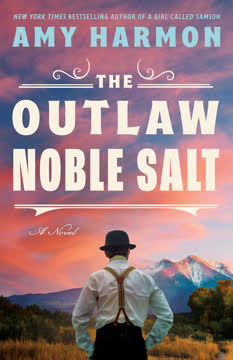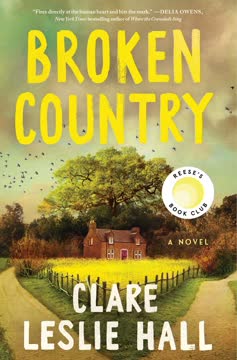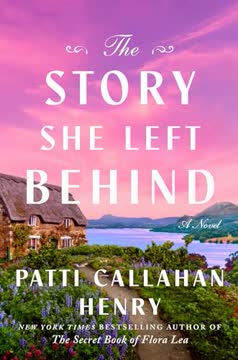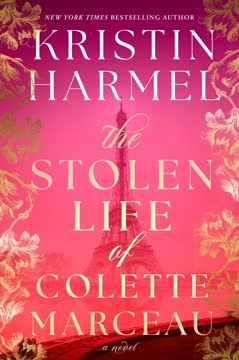Plot Summary
News of Outlaws' Demise
In 1908, young Augustus Maximilian Toussaint reads a small obituary in the paper: Butch Cassidy and the Sundance Kid are reported dead in Bolivia after a shootout. The world, the Pinkertons claim, is better off without them. Augustus, heartbroken, burns the article before his mother Jane can see it. The news is not just a headline—it's a personal loss, a wound that reopens memories of the outlaws' impact on his life. The world's indifference to their deaths contrasts sharply with Augustus's grief, setting the tone for a story about the true cost of legend, love, and loss. The chapter's quiet devastation lingers, foreshadowing the emotional journey to come.
Butch's Impossible Choice
In 1900, Butch Cassidy, weary of running, visits Judge Orlando Powers in Salt Lake City. He wants to turn himself in, hoping for a fair trial and a chance at a new life. Powers warns him: the system is rigged, the powerful want an example made, and innocence won't save him. Butch's reputation as a Robin Hood figure is both a shield and a curse. He's haunted by the choices of his past, the fate of his brother Van, and the collapse of the Wild Bunch. Ultimately, Butch realizes surrender means certain doom. Powers advises him to disappear, to shake the West from his boots, and to stop running with bad men before it's too late.
A Songbird's Sorrow
Jane Toussaint, the Parisian Songbird, captivates audiences with her voice but carries deep wounds. Her son Augustus is marked by a birthmark, and Jane's own past is marred by exploitation and survival. Onstage, she's luminous; offstage, she's guarded, wary of men and the world's cruelty. Her music is both escape and confession, a way to process grief and hope. When Butch, under an alias, enters her life, their connection is immediate but fraught. Jane's sorrow is not just personal—it's generational, a legacy of abandonment, ambition, and the longing for a family she can trust.
Night of Healing
When Augustus falls dangerously ill after a performance, Butch—posing as "Dr. Noble Salt"—steps in to help. Drawing on childhood experience, he nurses the boy through the night, forging a bond with both mother and son. Jane, exhausted and suspicious, is forced to trust this stranger. The night is a crucible: Butch's kindness and competence reveal a gentleness beneath his outlaw exterior, while Jane's vulnerability exposes her longing for safety. Their shared vigil is transformative, planting the seeds of love and mutual respect, even as secrets and lies hover in the background.
Parisian Shadows Return
Years later, in Paris, Jane and Augustus cross paths with "Noble Salt" again. Both have changed—Jane is more guarded, Augustus more aware of his difference. The city is full of memories and threats, especially from Lord Ashley, Jane's abuser and Augustus's biological father. Jane is desperate to escape, planning a new tour in America. She hires Noble as her bodyguard, seeking protection from both physical and emotional dangers. Their reunion is charged with unspoken history, hope, and the specter of the past. The promise of a new beginning is shadowed by the risks they must take to claim it.
The Handbill and the Past
Jane discovers a wanted poster for Butch Cassidy, realizing her "Noble Salt" is the infamous outlaw. The revelation is both thrilling and terrifying. She's drawn to his honesty and haunted by the violence that follows him. The handbill becomes a symbol of the inescapable past, the way stories—true or not—shape destinies. Jane's own secrets, including Augustus's parentage and her history with Lord Ashley, threaten to unravel the fragile safety she's built. The past is not dead; it's a living force, demanding reckoning and courage from all involved.
A Dangerous Reunion
As Jane, Augustus, and Noble travel to America, old allies and adversaries reappear. Van, Butch's troubled brother, and Sundance, the ever-contrary partner, join the journey. Their presence is both comfort and complication. The group is pursued by Pinkertons, haunted by Lord Ashley's machinations, and divided by old grievances. The journey is a test of loyalty, love, and survival. Each character must confront their own demons—Van's envy, Sundance's bitterness, Jane's trauma, and Butch's guilt. The reunion is bittersweet, a reminder that family is as much chosen as it is given.
The Bodyguard Bargain
To escape extradition and protect Jane from Lord Ashley's reach, Butch and Jane marry aboard a ship. The union is pragmatic but quickly deepens into genuine love. Augustus, overjoyed, finds in Butch the father he's always wanted. The marriage is a turning point: it offers Jane a new identity and legal protection, but also exposes them to new dangers. Their relationship is tested by secrets, the threat of violence, and the ever-present possibility of loss. The bargain is both shield and vulnerability, a leap of faith in a world that offers few guarantees.
Across the Atlantic Divide
Arriving in New York, the family faces immediate peril. Lord Ashley, Pinkertons, and the press close in. The tour is sabotaged, and Jane's reputation is at risk. Butch's outlaw past becomes both weapon and liability. The city is a maze of opportunity and danger, forcing the family to rely on each other and a small circle of allies. The Atlantic crossing is not just physical—it's a passage from one life to another, from survival to the possibility of happiness. But the divide between past and future is not easily crossed, and the cost of freedom is steep.
Kisses and Confessions
In the safety of borrowed rooms, Butch and Jane's relationship deepens. They share confessions, fears, and desires, learning to trust and love despite scars. Augustus, too, finds acceptance and joy, embraced by a makeshift family. But the outside world intrudes: news of Lord Ashley's murder, Van's reckless actions, and the relentless pursuit of the law threaten their fragile peace. Love becomes both sanctuary and battleground, a place where healing and heartbreak coexist. The intimacy they share is hard-won, a testament to resilience and the power of choosing each other.
The Wild Bunch Fractures
Van, desperate to prove himself, kills Lord Ashley, believing he's saving Jane and Augustus. The act sets off a chain reaction: the Pinkertons intensify their hunt, the press vilifies Jane, and Butch is forced to choose between loyalty to his brother and the safety of his new family. The Wild Bunch, once united by necessity and camaraderie, fractures under the weight of guilt, regret, and the consequences of violence. Sacrifice becomes inevitable—someone must pay the price for peace. The bonds of brotherhood are tested to their breaking point.
The Train Gambit
With the law closing in, Butch devises a plan to uncouple their train car and escape into the Utah wilderness. The maneuver is risky but succeeds, buying them precious time. The group splits: Van and Sundance head west, while Butch, Jane, and Augustus seek refuge in Salt Lake City. The escape is both literal and symbolic—a last act of defiance, a refusal to surrender to fate. Butch's ingenuity and courage shine, but the cost is clear: every victory is tinged with loss, every escape a reminder that running cannot last forever.
A Brother's Fatal Gift
In Bolivia, Van and Sundance, wounded and cornered, face their end. Sundance, mortally wounded, asks Van to end his suffering. Van, always in his brother's shadow, finally becomes the hero in his own story—he kills Sundance, then himself, leaving behind a note claiming to be Butch Cassidy. The world believes the legend is dead. Van's sacrifice is both tragic and redemptive, a final gift to the brother he could never quite become. The legend of Butch Cassidy is sealed, but the truth is more complicated, more human, and more heartbreaking.
The Price of Peace
Butch, determined to protect Jane and Augustus, turns himself in to Judge Powers, confessing to all crimes—including a murder he didn't commit. He bargains for Jane's safety, ensuring her name is cleared and her future secured. The act is both penance and love, a final attempt to set things right. Jane is devastated, furious at the loss, but ultimately understands the necessity. Augustus, too, is forced to grow up, learning that love sometimes means letting go. The price of peace is steep, but it buys a future for those left behind.
Saltair's Last Song
Jane and Augustus settle in Salt Lake City, building a quiet life. Jane sings at Saltair, her music now tinged with loss and longing. Augustus inherits a title and a future, but both are marked by the absence of Noble Salt. Letters and postcards arrive, coded with hope and grief. The world moves on, but the wounds remain. Jane's love for Butch is undiminished, even as she learns to live without him. The past is never far, but the possibility of healing endures.
The Outlaw's Surrender
Butch escapes prison with the help of a grateful lawman, vanishing into the wilderness. He becomes a ghost, a legend, a man without a name. The world believes he's dead, but Jane and Augustus hold onto hope, deciphering clues in letters and telegrams. The possibility of reunion lingers, a promise that love can outlast even the harshest exile. Butch's journey is both punishment and redemption, a search for peace in a world that refuses to forget.
A Son's Inheritance
With Lord Ashley dead, Augustus inherits the title of Earl of Werthog. Jane and Augustus face a choice: remain in America or return to England. The decision is fraught with meaning—home is not just a place, but the people you choose. Augustus, shaped by love and loss, is determined to honor both his mother's resilience and Noble's legacy. The inheritance is both burden and blessing, a chance to redefine what it means to belong.
The Final Telegram
A telegram arrives, written in hokku, signaling that Van and Harry are dead, but Noble Salt lives. Passage to London is paid, an invitation to a new beginning. Jane and Augustus, hearts full of hope and fear, board a ship for England. The journey is both ending and beginning, a leap into the unknown. The telegram is more than news—it's a promise that love, once found, can be found again.
The Return of Noble Salt
On the deck of a ship bound for England, Jane and Augustus spot Noble Salt—Butch Cassidy—waiting for them. The reunion is quiet, joyful, and hard-won. In London, they build a new life, free from the shadows of the past. Jane sings for pleasure, Augustus grows into his inheritance, and Noble finds peace in anonymity. The legend of Butch Cassidy fades, but the truth endures: love, in all its flawed, fierce glory, is the only thing worth running toward.
Characters
Butch Cassidy / Noble Salt / Robert LeRoy Parker
Butch is a man divided: legendary outlaw, gentle caretaker, and restless soul. Raised in poverty, he's driven by a sense of justice warped by circumstance. His intelligence and charisma make him a natural leader, but guilt and regret shadow every choice. His relationship with Jane and Augustus reveals a capacity for tenderness and self-sacrifice, challenging the myth of the heartless criminal. Butch's journey is one of atonement—he seeks not just escape, but meaning, love, and a place to belong. His willingness to surrender for Jane's sake is both tragic and heroic, a final act of love that redefines his legacy.
Jane Toussaint / Jane Boot
Jane is a woman forged by hardship: orphaned, exploited, and transformed into a star. Her beauty and talent mask deep wounds—abuse by Lord Ashley, a loveless marriage, and the burden of protecting her son. Jane's relationship with Butch is a revelation, awakening hope and desire she thought lost. Her love is fierce, protective, and at times self-destructive. She is both vulnerable and unbreakable, a mother who will do anything for her child. Jane's journey is one of reclaiming agency, learning to trust, and finding peace in a world that has rarely been kind.
Augustus Maximilian Toussaint
Augustus, Jane's son, is defined by his birthmark and the world's reaction to it. Intelligent, sensitive, and resilient, he craves acceptance and love. His relationship with Butch is transformative—he finds in him the father he's never had. Augustus's journey is one of self-acceptance, learning that his difference is not a curse but a source of strength. His inheritance of the Earl of Werthog title is both a challenge and an opportunity, forcing him to define his own worth. Augustus's poetry and insight offer hope, humor, and wisdom beyond his years.
Van Campbell Parker
Van is Butch's younger brother, forever in his shadow. Driven by jealousy, insecurity, and a desperate need for approval, Van's choices are often reckless and self-sabotaging. His love for Butch is twisted by resentment, leading to both betrayal and sacrifice. Van's final act—killing Lord Ashley and later himself—reveals both his longing for heroism and his inability to escape his own flaws. He is a cautionary figure, a reminder of the cost of living in another's shadow.
Harry Longabaugh / Sundance Kid
Sundance is Butch's longtime partner, defined by his sharp wit, quick temper, and deep-seated bitterness. His relationship with Ethel is a mirror to Butch and Jane's, marked by love, loss, and regret. Sundance's loyalty is fierce but often destructive, his inability to change sealing his fate. His final moments with Van are both heartbreaking and redemptive, a testament to the bonds that outlast even death.
Lord Ashley Toussaint, Earl of Werthog
Lord Ashley is the embodiment of privilege corrupted. His abuse of Jane and indifference to Augustus's suffering set the story's central conflict in motion. His murder, while a relief to his victims, unleashes chaos and forces the other characters to confront the consequences of violence. He is a shadow over Jane's life, a reminder that some wounds never fully heal.
Orlando Powers
Powers is the voice of reason and the embodiment of a flawed justice system. He recognizes Butch's humanity and tries to guide him toward survival, but is ultimately powerless against the machinery of law and vengeance. His compassion for Jane and Augustus is genuine, and his role as intermediary is crucial in securing their future.
Emma Harvey
Emma provides sanctuary for Jane, Augustus, and the outlaws. Her home is a rare place of warmth, stability, and acceptance. She is practical, nurturing, and unflappable, offering the kind of maternal care Jane never knew. Emma's presence is a reminder that kindness can be revolutionary.
Ethel Place
Ethel, Sundance's beloved, is a ghostly presence—her absence haunts him, shaping his choices and fueling his bitterness. Her fate is ambiguous, but her impact is profound. She represents the possibility of redemption and the pain of opportunities lost.
Edward Harriman
Harriman, the railroad magnate, is both benefactor and adversary. His influence shapes the fates of Butch, Jane, and Augustus, offering both opportunity and threat. He is a symbol of the new world—ruthless, pragmatic, and indifferent to individual suffering.
Plot Devices
Dual Identities and False Names
The use of aliases—Butch Cassidy, Noble Salt, Jane Toussaint, and others—reflects the characters' need to escape, survive, and reinvent themselves. Names are both shields and prisons, shaping how characters are seen and how they see themselves. The tension between public legend and private truth is a central theme, explored through shifting identities and the stories people tell about themselves.
Found Family and Chosen Bonds
The novel foregrounds the idea that family is not just inherited but chosen. Butch, Jane, Augustus, Van, and Sundance form a makeshift family, bound by necessity, love, and shared trauma. Their relationships are tested by betrayal, sacrifice, and the demands of survival. The bonds they forge are both lifeline and liability, offering hope and exposing vulnerability.
The Haunting Past and Cycles of Violence
The past is never truly past—old wounds, crimes, and betrayals resurface, shaping the present and threatening the future. The cycle of violence—personal and systemic—traps characters in patterns they struggle to break. The story uses foreshadowing, flashbacks, and recurring motifs (songs, poems, handbills) to explore how history haunts and how healing might be possible.
Sacrifice and Redemption
Characters are repeatedly forced to choose between self-preservation and the well-being of others. Butch's surrender, Van's final act, and Jane's willingness to risk everything for Augustus are all acts of sacrifice. Redemption is hard-won, never complete, and often comes at great cost. The narrative structure mirrors this, with moments of hope followed by loss, and acts of love shadowed by regret.
Narrative Framing and Multiple Perspectives
The story moves fluidly between characters—Augustus, Jane, Butch, Van, and others—allowing readers to inhabit different emotional landscapes. This multiplicity of perspectives creates empathy, complexity, and a sense of shared fate. The use of poetry (hokku), songs, and letters as narrative devices adds texture and intimacy, inviting readers into the characters' inner worlds.
Analysis
Amy Harmon's The Outlaw Noble Salt is a sweeping, emotionally charged reimagining of the Butch Cassidy legend, blending historical fact with intimate fiction. At its core, the novel interrogates the myths of the American West, exposing the human cost behind the romance of outlaws and the price of survival in a world shaped by violence, power, and loss. Through the intertwined journeys of Butch, Jane, and Augustus, Harmon explores themes of identity, trauma, and the redemptive power of love. The story refuses easy answers: justice is flawed, heroism is complicated, and healing is never complete. Yet, amid betrayal and heartbreak, the novel insists on the possibility of hope—found in chosen family, acts of kindness, and the courage to begin again. In a modern context, the book resonates as a meditation on the stories we inherit and the ones we choose to write for ourselves, reminding us that even the most broken among us are worthy of love, and that the legends we leave behind are shaped as much by our failures as by our triumphs.
Last updated:
Review Summary
The Outlaw Noble Salt is a historical fiction novel by Amy Harmon that reimagines the life of Butch Cassidy. Readers praise Harmon's storytelling, character development, and emotional depth. The book explores themes of redemption, love, and second chances. Many reviewers found the romance between Butch/Noble and Jane compelling, and appreciated the historical details. Some critics felt the pacing was slow at times. Overall, the novel received positive reviews for its rich narrative and complex characters, with particular praise for the portrayal of Butch Cassidy and the relationship between Noble and Jane's son, Gus.









